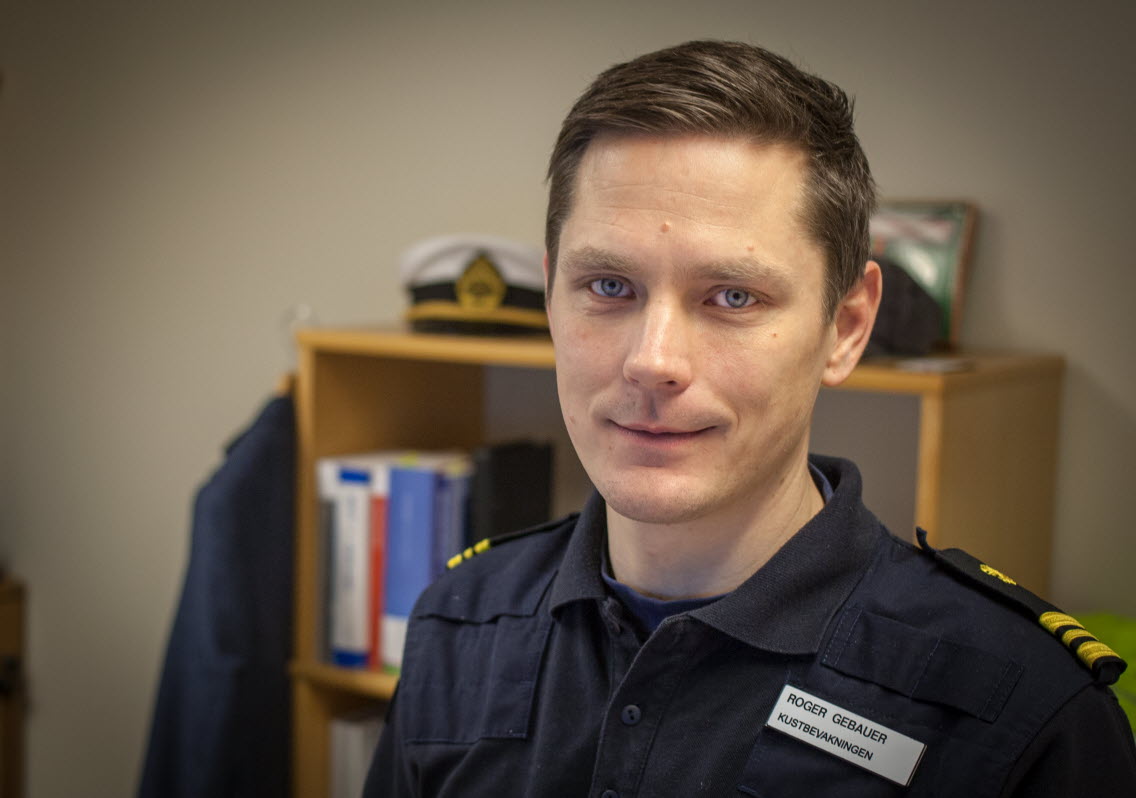He headed up the rescue operation when Makassar Highway ran aground
23 January 2020 08:55

When car carrier Makassar Highway ran aground in the Tjust archipelago a year ago, Roger Gebauer headed up the Swedish Coast Guard’s operations the first few days. "In the role of incident commander, it is important to be humble, be able to trust your colleagues and dare to make decisions even when the outcome is uncertain."
Before 8 a.m. on 23 July 2018, incident commander Roger Gebauer was informed of a grounded vessel outside of Valdemarsvik. The vessel was a 139 metre long car carrier that had run aground while cruising at 14 knots with an intoxicated chief officer on watch. The vessel was carrying just over 330 tonnes of heavy oil, 60 tonnes of diesel and 1,325 cars.
What were your initial thoughts when you learned of the grounding?
“My head was naturally swirling with lots of questions all at the same time. How extensive was the damage? How great was the spill risk? Which units can we send? As the incident commander, it is important to get a quick overview and not get bogged down in all of the details that arise in this type of situation.”
Who takes care of all the practical details?
“The support staff consists of several different expert functions that cover everything from logistics to personnel planning and incident command. There is also an on-scene commander (OSC) at the site of the accident who functions as the incident commander’s extended arm. Rescue services are truly a team effort and require cooperation on many different levels.”
Isn’t there a saying that “necessity knows no law”? Is that the case here?
“Not exactly. Our environmental rescue operations are conducted under the framework of the Civil Protection Act (2003:778), which describes the criteria for rescue services. It is then up to me as the incident commander to continuously assess whether the criteria are being met as the operation proceeds. The act stipulates that we are to respond to the accident with the appropriate ‘proportion’, but what is proportionate is often not clear until after the fact. For this reason, it is important to document all decisions and the reasoning behind them.”
It sounds like the incident commander needs to make many difficult decisions. What are the attractive aspects of the role?
“It is extremely informative since no one accident is like another. That makes my job both challenging and instructive. Then there is the fantastic feeling of tackling a difficult assignment together with colleagues in order to protect our marine environment.”
What has been going on since the accident, and what lessons has the Swedish Coast Guard come away with?
“The grounding is one of the biggest accidents we have managed in the past few years, and as an organisation we have naturally learned a lot. Three direct measures we have undertaken are that we have developed our materials, improved our support staff’s capacity and worked with targeted inspections within the shipping industry.”
And on a personal level?
“I feel humbled by the accident in terms of our assignment, and I have learned how important support staff and line colleagues are in terms of the operation’s success.”
And finally, what are your thoughts on the accident now, a year later?
“I have mixed feelings. At the time, the outcome was uncertain with constant ‘what-if’ scenarios. It is easy to use the benefit of hindsight and think about what could have been done differently. On the other hand, I will never forget how hard we all worked to resolve the situation to the best of our ability. It is this aspect that makes me look back on the operation with a sense of pride.”
Changed 28 May 2021 10:33

